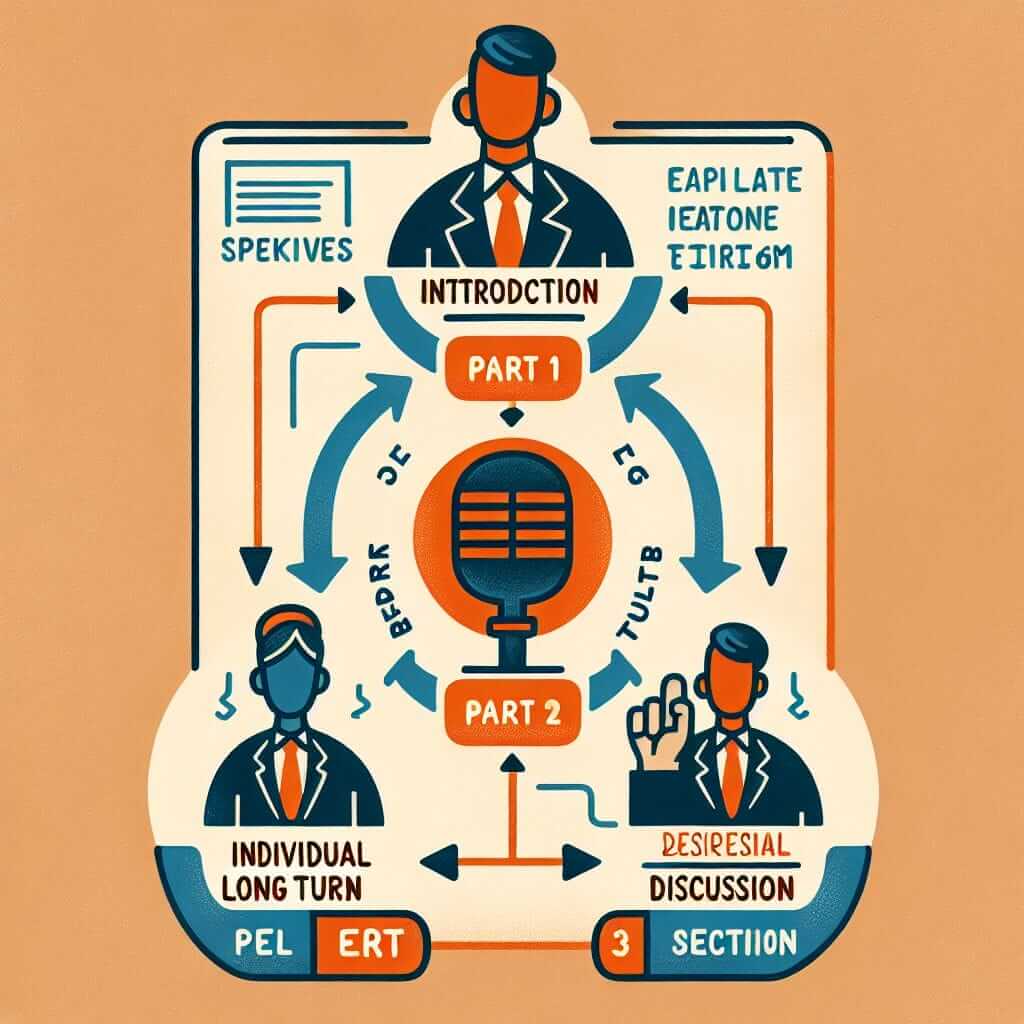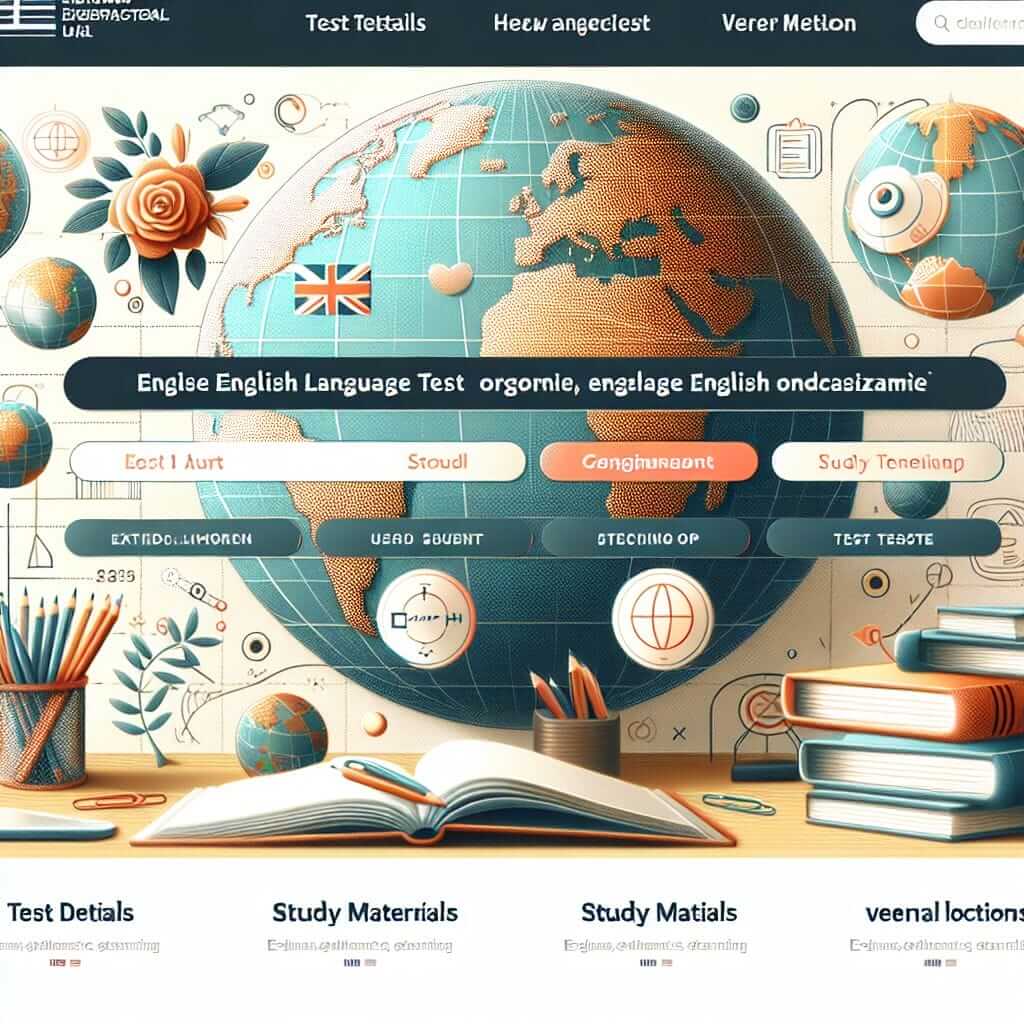As an IELTS instructor with over two decades of experience, I’ve witnessed countless students navigate the path to IELTS success. This comprehensive guide, tailored for both educators and test-takers, delves into the intricacies of the exam, equipping you with the knowledge and strategies needed to excel.
Table Of Contents
- Understanding the IELTS Exam Format
- Effective IELTS Preparation Strategies
- 1. Familiarize Yourself with the Exam Format
- 2. Enhance Your English Proficiency
- 3. Develop Effective Time Management Skills
- 4. Seek Feedback and Guidance
- Example: Analyzing an IELTS Speaking Cue Card
- Tips for Success on Exam Day
- Conclusion
Understanding the IELTS Exam Format
Before embarking on your IELTS journey, it’s crucial to grasp the exam’s structure and purpose. The IELTS, or International English Language Testing System, assesses your ability to utilize English for academic, professional, or migration purposes.
The exam is divided into four sections:
-
Listening: This section evaluates your comprehension of spoken English, including lectures, conversations, and social interactions.
-
Reading: This component measures your ability to understand written English through various passages from books, journals, and newspapers.
-
Writing: This section assesses your written communication skills, requiring you to compose an essay and a descriptive or analytical task.
-
Speaking: This component evaluates your fluency, vocabulary, grammar, and pronunciation in a face-to-face interview.
Effective IELTS Preparation Strategies
1. Familiarize Yourself with the Exam Format
A thorough understanding of the exam structure, question types, and time constraints is paramount. Familiarize yourself with sample tests available on the official IELTS website (ielts.org) to gain a realistic exam-day experience.
2. Enhance Your English Proficiency
Consistent exposure to the English language is key. Engage in activities that enhance your reading, listening, writing, and speaking skills. Read English-language newspapers, watch movies and documentaries, and converse with native speakers whenever possible.
3. Develop Effective Time Management Skills
Time management is crucial in the IELTS exam. Practice pacing yourself during mock tests to ensure you allocate sufficient time for each question and section.
4. Seek Feedback and Guidance
Feedback from an experienced IELTS instructor can provide valuable insights into your strengths and weaknesses. Enroll in a reputable IELTS preparation course or seek guidance from a qualified tutor.
 IELTS Speaking Test
IELTS Speaking Test
Example: Analyzing an IELTS Speaking Cue Card
Let’s dissect a sample IELTS Speaking cue card:
Describe a time you visited a historical place.
You should say:
- Where it was
- When you visited it
- Who you went with
- And explain how you felt about visiting this place.
Analysis: This cue card requires you to demonstrate your ability to narrate a personal experience coherently and use descriptive language.
Sample Response:
“Last summer, I had the opportunity to visit the ancient city of Petra in Jordan. I travelled there with a group of friends who share my passion for history. We spent an entire day exploring the site, marveling at the intricate carvings and the sheer scale of the structures. The experience was truly awe-inspiring and gave me a profound appreciation for the ingenuity and artistry of past civilizations.”
Tips for Success on Exam Day
-
Get a good night’s sleep: Ensure you’re well-rested to optimize your focus and performance.
-
Arrive at the test center early: This allows ample time for registration and settling in.
-
Stay calm and composed: Nervousness can hinder performance. Take deep breaths and approach each section with a clear mind.
-
Read instructions carefully: Misinterpreting instructions can lead to costly mistakes.
-
Proofread your writing: Allocate time to review your written responses for grammatical errors and clarity.
Conclusion
Mastering the IELTS exam requires a combination of strategic preparation, consistent effort, and expert guidance. By immersing yourself in the English language, understanding the exam format, and seeking feedback, you can confidently approach this challenge and achieve your desired score. Remember, success in the IELTS exam opens doors to a world of opportunities.



